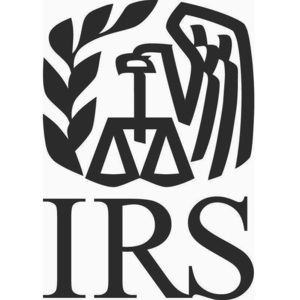MOU between EPA, IRS aims to improve biofuel tax fraud analysis

September 4, 2019
BY Erin Krueger
The U.S. EPA posted a notice to its websites Sept. 4 announcing a memorandum of understanding (MOU) with the Internal Revenue Service under which the agencies have agreed to share information in an effort to identify and respond to fraud related to renewable fuels.
Under the MOU, the EPA and IRS will share information about fuel production facilities and fuel program compliance to facilitate policy development, market understanding, data verification for renewable fuel credits, identification and reduction of renewable identification number (RIN) fraud in support of Renewable Fuel Standard program administration, and identification and reduction of fuel tax fraud in support of federal tax administration.
According to the MOU, the EPA collects data from regulated parties on gasoline, diesel, renewable fuels and other transportation fuels to assess program implementation and compliance with fuels standards and regulations. Meanwhile, the IRS investigates fraudulent claims for fuel tax credits. The MOU indicates that review of significant cases found common fraudulent practices, such as not producing product, conducting inter-party related transactions, and creating the illusion that the fuel was being produced when it was not. In the MOU, the agencies note the IRS has pursued the majority of these criminal fraud cases jointly with the EPA. Prosecution of these cases by the U.S. Department of Justice generally include substantial violations related to both RIN credits under the RFS program and federal tax law violations.
Advertisement
Advertisement
The MOU explains that the EPA maintains data related to renewable fuel production in its Moderated Transaction System and in the company registration and reporting systems. “The IRS would like to partner with the EPA to improve tax fraud analysis by using data from these EPA systems to help identify those common factual situations and the entities potentially involved in noncompliant or illegal activities,” the MOU states. “Once the analysis is complete and entities submitting fraudulent fuel tax credits are identified, the IRS will pursue civil and criminal investigations, as appropriate. IRS Criminal Investigations…and EPA Criminal Investigations Division may engage in joint investigations of RIN and tax credit fraud under the direction of the [U.S.] States Attorney.”
According to the MOU, the IRS efforts will directly support the RFS program, and more specifically the appropriate use of RINs by ensuring a level playing field among renewable fuel producers. “There is a residual compliance effect that occurs when entities considering dishonest or illegal practices realize the IRS is involved in joint enforcement efforts with the EPA,” the MOU states.
Under the MOU, the IRS will, on a quarterly basis, provide aggregate fuel tax and fuel credit data to the EPA. The data will be statistically complied so the identity of a specific taxpayer or business cannot be identified. The IRS will also provide historic and current aggregated data as requested. The EPA intends to compere these aggregate totals to fuel data reported to the EPA as a high-level verification check on data accuracy.
Advertisement
Advertisement
On case-by-case basis and to the extent necessary for case development, the IRS will make written requests to the EPA for detailed information on specific taxpayers. The MOU specifies that the IRS agrees not to disclose outside of its agency the portions of the RFS data document covered by a confidential business information (CBI) claim, except as allowed under certain regulations or as required by applicable law.
Under the MOU, the EPA will respond to IRS written requests with RFS data. Both agencies will designate, in writing, staff assigned to the initiative.
A full copy of the MOU, which includes more detailed information on the handling of confidential business information, is available on the EPA website.
Related Stories
The USDA has announced it will delay opening the first quarterly grant application window for FY 2026 REAP funding. The agency cited both an application backlog and the need to disincentivize solar projects as reasons for the delay.
Neste and DHL Express have strengthened their collaboration with the supply of 7,400 tons (9.5 million liters) of neat, i.e. unblended, Neste MY Sustainable Aviation Fuel to DHL Express at Singapore Changi Airport starting July 2025.
CoBank’s latest quarterly research report, released July 10, highlights current uncertainty around the implementation of three biofuel policies, RFS RVOs, small refinery exemptions (SREs) and the 45Z clean fuels production tax credit.
The U.S. Energy Information Administration maintained its forecast for 2025 and 2026 biodiesel, renewable diesel and sustainable aviation fuel (SAF) production in its latest Short-Term Energy Outlook, released July 8.
XCF Global Inc. on July 10 shared its strategic plan to invest close to $1 billion in developing a network of SAF production facilities, expanding its U.S. footprint, and advancing its international growth strategy.
Upcoming Events










